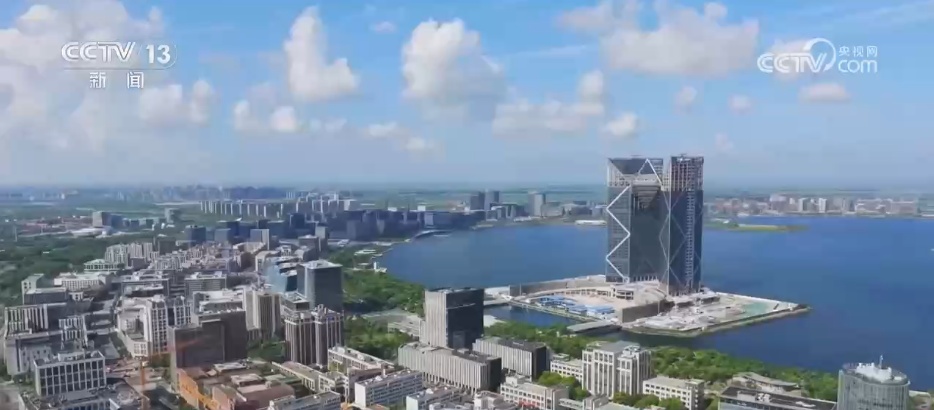China's sacrifices should always be remembered
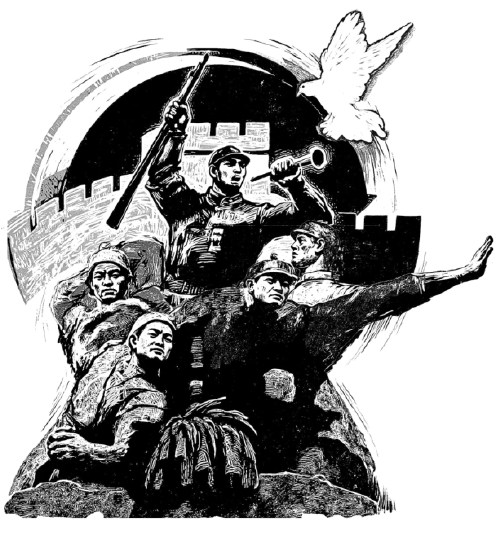
MA XUEJING/CHINA DAILY。
Editor's note: With global tensions rising and regional conflicts showing no signs of ending, it has become more urgent than ever to understand the root causes of war. Wang Jianlang, president of the Chinese Society for the History of the War of Resistance Against Japanese Aggression, reflects on some overlooked aspects of World War II — its real starting point, China's under-recognized contribution, and why the principle of "indivisible peace" remains vital today. Wang also warns against populism and historical amnesia in an in-depth conversation with China Daily's Liu Jianna for Dialogues with Thinkers, China Daily's high-end interview program. Following are excerpts from the interview:。
Q1: How should the world reflect on World War II amid the ongoing regional conflicts in order to prevent new wars?
A: We are witnessing a turbulent era of global change. While we may not yet be on the brink of a third world war, the current global environment is arguably the most chaotic in the 80 years since the end of World War II. International rules and norms are being repeatedly violated, increasing the risks of a global war.。
In such times, it is crucial to learn from the experiences of World War II. The prelude to that war showed how incremental aggression, if unchecked, could spiral into a global catastrophe. The world failed to respond decisively to early acts of aggression, which ultimately emboldened the Axis powers. Japan's occupation of Northeast China, Germany's expansion into Austria and Czechoslovakia were all warning signs.。
Today, our ability to prevent another global war hinges on our willingness to uphold international norms, support multilateral institutions, and collectively and decisively respond to emerging threats. History warns us that inaction and appeasement are often enablers of war.。
Q2: Why should we reconsider the starting point of World War II?
A: Traditionally, World War II is considered to have begun in 1939 with Germany's invasion of Poland. This Euro-centric perspective has dominated mainstream history. However, decades of research suggest the war had two major origins: Europe and East Asia.。
Japan's invasion of Northeast China in 1931 — commonly known as the "Sept 18 Incident" — was a prelude to World War II. But the world at that time failed to recognize its global implications, which led to a long and brutal campaign that eventually evolved into a full-scale war in 1937.。
If we consider the Axis powers collectively as the initiators of World War II, then Japan's invasion of Northeast China in 1931 marked the opening act of the conflict, while its full-scale invasion of China in 1937 should be recognized as the true starting point of the war. Recognizing this broader timeline will not diminish European experiences but rather complete the full global picture of the war, because World War II was not a single-front conflict but a worldwide fight against fascism, shaped by multiple triggers and theaters of violence.。
Q3: What key lessons from World War II should we always remember?
A: One of the most important lessons is the danger of appeasement and inaction in the face of early aggression. Before 1937, as Japan escalated its aggression into a full-scale invasion of China, the international community largely limited its response to expressions of sympathy, offering little in the way of concrete support. The lack of action to curb Japan's ambitions failed to deter Japan's expansion, which continued to intensify in the following years.。
Similarly, in Europe, the 1938 Munich Agreement — where Great Britain and France conceded Czechoslovak territory to Nazi Germany — demonstrated how granting repeated concessions could backfire. Germany and Japan both interpreted these diplomatic compromises as a green light to intensify their aggressive campaigns.。
Another crucial lesson is the concept of "peace is indivisible". In the 1930s, major powers such as the United States viewed regional wars in Asia as irrelevant to their own national security. It wasn't until the industrial Western powers were attacked and a global alliance was formed that the importance of world peace became undeniable.。
This idea is part of the foundation of international relations. The threat to peace in one region must be seen as a threat to global peace and stability, which warrants collective and timely action. Only by adhering to this principle can we prevent regional conflicts from turning into global wars.。
Q4: How did China contribute strategically to the global anti-fascist war?
A: China's role in the global fight against fascism has often been undervalued, partly because it was not an industrial power like the US, Great Britain or the Soviet Union. Nonetheless, China's strategic contributions were immense.。
Despite the vast disparity in economic and military capabilities — China's GDP was less than a quarter and steel production less than 1 percent of Japan — China resisted Japanese aggression for 14 years, which includes eight years of full-scale war. It was a prolonged and costly resistance.。
China tied down more than 1 million Japanese troops on the Asian mainland, significantly easing pressure on Allied forces in the Pacific. Nearly 700,000 Japanese troops were engaged in Northeast China, preventing Japan from launching attacks on the Soviet Union's eastern front. This protected the Soviet Union in the east while it engaged in a brutal conflict with Nazi Germany in the west.。
Moreover, Chinese forces fought in foreign theaters such as Myanmar, contributing to the broader Allied victory. These sacrifices and strategic contributions earned China recognition as one of the "Big Four" Allied powers and a permanent seat in the UN Security Council. China's endurance and resistance were pivotal to the global outcome of the war.。
Q5: Why should the 1937 Lugou Bridge Incident be seen as a starting point of World War II?
A: While 1931 marked the beginning of a regional war of resistance against Japanese aggression, the Lugou Bridge Incident on July 7, 1937, signaled the onset of full-scale war between China and Japan.。
If we define World War II as a global war between expansionist powers and international resistance, then the 1937 invasion stands as a starting point of the war. Recognizing this helps correct the imbalance in Western narratives on the war, which often sideline the main Eastern battlefield's importance.。
By incorporating this perspective, we acknowledge that the war was not West-centric but part of a broader global breakdown of peace. It allows for a more nuanced understanding of the interconnectedness of global conflicts, and ensures that the experiences of Asian nations are not overlooked in the history of World War II.。
Q6: How should we see the roles of the Communist Party of China and Kuomintang during the Chinese People's War of Resistance Against Japanese Aggression?
A: Both the CPC and the KMT played vital roles in resisting Japanese aggression, operating on two major fronts: the enemy's rear and the main battlefield. Their contributions were complementary, even if political tensions between them persisted.。
When honoring wartime sacrifices, we should focus on the fact that all Chinese forces, regardless of their political affiliation, fought to defend the nation. Both the CPC and KMT soldiers are part of our shared memory of resistance and deserve equal recognition for their bravery. It's also important to resist overly politicized historical narratives that pit one side against the other. The reality is that their coordinated efforts helped sustain the national resistance despite extreme hardship. The legacy of these joint efforts should be a symbol of unity rather than division.。
Q7: Why must we remain vigilant against populist rhetoric and political manipulation?
A: World War II was not only a military conflict but also a political and psychological conflict. Both Nazi Germany and imperial Japan used mass propaganda to stir ultra-nationalism and justify their expansionist policies.。
Even today, in the age of information, populist leaders can distort facts and manipulate public sentiment. When emotions override reason, democratic systems can become vulnerable, and history shows how dangerous that can be.。
Preventing the resurgence of authoritarianism requires constant vigilance against those who use ultra-nationalism, fear and populism to polarize societies. The example of Hitler reminds us of how unchecked emotional mobilization can disable societal checks and balances, and lead to disaster.。
In this era dominated by social media echo chambers and algorithm-driven content, the danger is even greater. Populism can thrive in disinformation-prone environments, making it all the more essential to promote critical thinking and independent journalism.。
Q8: How did World War II lay the groundwork for today's global governance system?
A: After the end of World War II, the international community sought to prevent a recurrence of another global war by establishing a robust system of collective security, most notably through the United Nations. The concept of peace is indivisible became institutionalized; as a result any regional conflict can now be discussed at the UN Security Council.。
This legacy is not just symbolic. It reflects the hard-earned lesson that diplomacy and dialogue should take precedence over unilateral military actions. Today, maintaining the postwar world order is essential to maintain global stability.。
The idea that all conflicts — no matter how localized — can escalate and affect global peace shaped institutions like the UN and principles like the Responsibility to Protect. These frameworks are under strain today but remain vital.。
Recommitting to the spirit of postwar cooperation requires reforming and strengthening global institutions to reflect 21st-century realities, without losing sight of the lessons that led to their formation.。
Q9: Why has China's World War II narrative often been underrepresented globally?
A: Several factors have contributed to this narrative. First, during World War II, China was not an industrial power and, unlike its Western allies, lacked global influence. As a result, its contributions, though strategic and prolonged, did not receive equal attention in postwar narratives.。
Second, the dominant Euro-American focus in World War II historiography has often overlooked the significance of the main Eastern battlefield. But recent decades have seen a growing recognition of China's central role in resisting fascism.。
And third, ideological tensions during the Cold War further distorted historical representation. China's role was either politicized or sidelined depending on the prevailing geopolitical narrative. Only in recent decades has there been a scholarly shift toward a more balanced global account of World War II. Reframing historical narratives to include multiple perspectives is not about rewriting history; it's about completing it.。
Q10: Why does redefining the World War II narrative matter in today's geopolitical landscape?
A: Historical narratives shape contemporary perceptions and policies. Recognizing China's role in World War II reinforces its legitimacy as a founding member of the international order. It also highlights the importance of non-Western contributions to global peace.。
At a time when multilateralism is under strain and nationalism is on the rise, a more inclusive World War II narrative reminds us of the shared sacrifices that led to the formation of the current global system, and why it must be protected.。
Moreover, as new conflicts occur and historical accounts are often invoked to achieve political ends, a clearer understanding of how wars began — and how they were won — can guide better decision-making. Accurate, inclusive history is a cornerstone of peace and cooperation.。
To build a bright global future, we require a collective memory which should recognize that World War II was not only fought and won in Europe, but across continents, with shared sacrifices and the common hope for peace.。
Wang Jianlang, president of the Chinese Society for the History of the War of Resistance Against Japanese Aggression. The views don't necessarily represent those of China Daily.。
If you have a specific expertise, or would like to share your thought about our stories, then send us your writings at opinionchinadaily.com.cn, and commentchinadaily.com.cn.。
(责任编辑:百科)
-
 新华社雅加达4月11日电 特写|中印尼工作教育协作助力印尼学子圆梦。新华社记者陶方伟。4月的印度尼西亚雅加达,阳光透过教育楼的窗户洒在一台台精细的智能制作设备上,机器的操出声与学生们火热的评论声此伏彼
...[详细]
新华社雅加达4月11日电 特写|中印尼工作教育协作助力印尼学子圆梦。新华社记者陶方伟。4月的印度尼西亚雅加达,阳光透过教育楼的窗户洒在一台台精细的智能制作设备上,机器的操出声与学生们火热的评论声此伏彼
...[详细]
-
 数智赋能为纺织业插上“智造”翅膀。5月24日,在坐落山东省日照市高新区的日照品特裕华纺织科技有限公司出产车间内,一名技能人员正在调试分压器主动拼装设备。日照品特裕华纺织科技有限公司由西班牙品特集团与日
...[详细]
数智赋能为纺织业插上“智造”翅膀。5月24日,在坐落山东省日照市高新区的日照品特裕华纺织科技有限公司出产车间内,一名技能人员正在调试分压器主动拼装设备。日照品特裕华纺织科技有限公司由西班牙品特集团与日
...[详细]
-
 当地球日撞上读书日,环保与阅览,爱天然与自爱,总能赋予四月春色异样的夸姣。4月22日,合肥邃古可口可乐举行的“全国无废”环保公益展,在罍街满意闭幕,经过饯别舒畅可行的环保小事,推行零糟蹋、可继续的日子
...[详细]
当地球日撞上读书日,环保与阅览,爱天然与自爱,总能赋予四月春色异样的夸姣。4月22日,合肥邃古可口可乐举行的“全国无废”环保公益展,在罍街满意闭幕,经过饯别舒畅可行的环保小事,推行零糟蹋、可继续的日子
...[详细]
-
 兰花大揭秘!你认为兰花仅仅观赏植物?错了!入药、做面膜、做冰激凌,作为我国人心中“正人时令”标志的兰花,早已悄然走入咱们的日子。野生兰花怎么生计?你阳台上养的“兰花”都是真兰花吗?我国科学院华南植物园
...[详细]
兰花大揭秘!你认为兰花仅仅观赏植物?错了!入药、做面膜、做冰激凌,作为我国人心中“正人时令”标志的兰花,早已悄然走入咱们的日子。野生兰花怎么生计?你阳台上养的“兰花”都是真兰花吗?我国科学院华南植物园
...[详细]
-
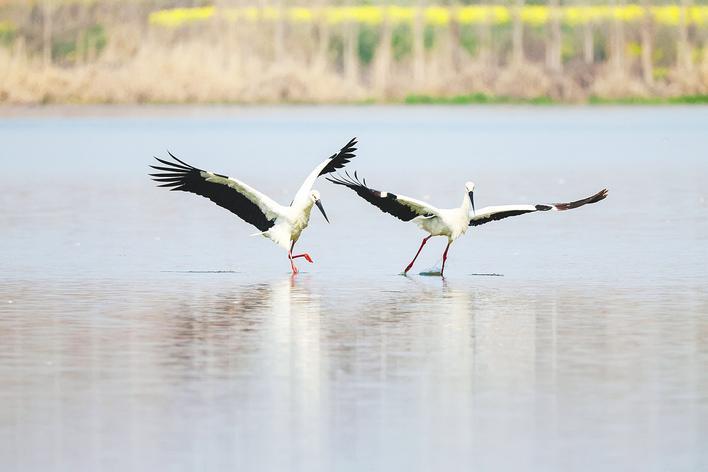 在汉江边拍摄到的东方白鹳。 受访者供图)。湖北日报讯 记者汪训前、通讯员冯罗庆)近来,沙洋县拍摄爱好者冯先生在汉江边拍摄到东方白鹳的宝贵印象。据介绍,这是荆门市初次记录到东方白鹳的踪影。东方白鹳属国家
...[详细]
在汉江边拍摄到的东方白鹳。 受访者供图)。湖北日报讯 记者汪训前、通讯员冯罗庆)近来,沙洋县拍摄爱好者冯先生在汉江边拍摄到东方白鹳的宝贵印象。据介绍,这是荆门市初次记录到东方白鹳的踪影。东方白鹳属国家
...[详细]
-
 近期环绕“团结奋斗新征途 保存隐秘靠我们”主题,工商银行马鞍山分行仔细安排展开保密专题教育活动。一是环绕4.15全民国家安全教育日宣扬教育主题,安排全辖网点经过翻滚显示屏、厅堂粘贴保密宣扬海报、播映保
...[详细]
近期环绕“团结奋斗新征途 保存隐秘靠我们”主题,工商银行马鞍山分行仔细安排展开保密专题教育活动。一是环绕4.15全民国家安全教育日宣扬教育主题,安排全辖网点经过翻滚显示屏、厅堂粘贴保密宣扬海报、播映保
...[详细]
-
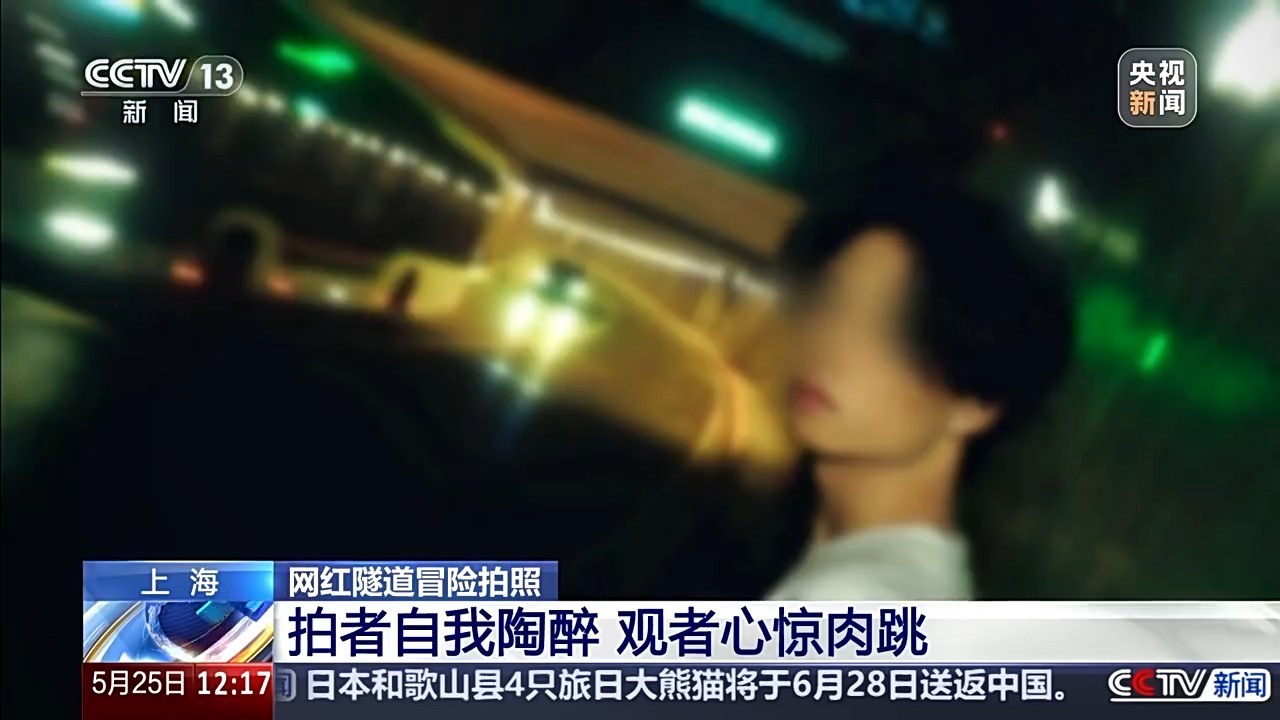 近来,上海长宁区新华路地道因被传“十分具有电影感”成为网红打卡地,不少网友为了寻求“出片”,冒险进入明令制止行人通行的地道摄影。对此,上海长宁交警部门打开专项整治,消除路途安全隐患。拍者自我陶醉 观者
...[详细]
近来,上海长宁区新华路地道因被传“十分具有电影感”成为网红打卡地,不少网友为了寻求“出片”,冒险进入明令制止行人通行的地道摄影。对此,上海长宁交警部门打开专项整治,消除路途安全隐患。拍者自我陶醉 观者
...[详细]
-
安徽万通举行2023年宣城市退役军人异地技术训练定向班毕业典礼
 活跃有用展开退役武士异地技术训练作业,不仅能协助退役武士体系学习常识和技术,理清作业思路,进步作业率,仍是完成退役武士作业增收,安稳经济的重要行动。为提高我省退役武士工作技术水平,拓展其作业途径,处理
...[详细]
活跃有用展开退役武士异地技术训练作业,不仅能协助退役武士体系学习常识和技术,理清作业思路,进步作业率,仍是完成退役武士作业增收,安稳经济的重要行动。为提高我省退役武士工作技术水平,拓展其作业途径,处理
...[详细]
-
 荆楚网湖北日报网)讯通讯员 万建国、刘亭、付萍)“雷暴雨气候,我们进站时多停5秒钟,保证大雨气候里的乘客都顺畅上车。”4月11日下午1点,武汉下起了雷暴大雨,江岸中环商贸城公交枢纽站706起点,一台公
...[详细]
荆楚网湖北日报网)讯通讯员 万建国、刘亭、付萍)“雷暴雨气候,我们进站时多停5秒钟,保证大雨气候里的乘客都顺畅上车。”4月11日下午1点,武汉下起了雷暴大雨,江岸中环商贸城公交枢纽站706起点,一台公
...[详细]
-
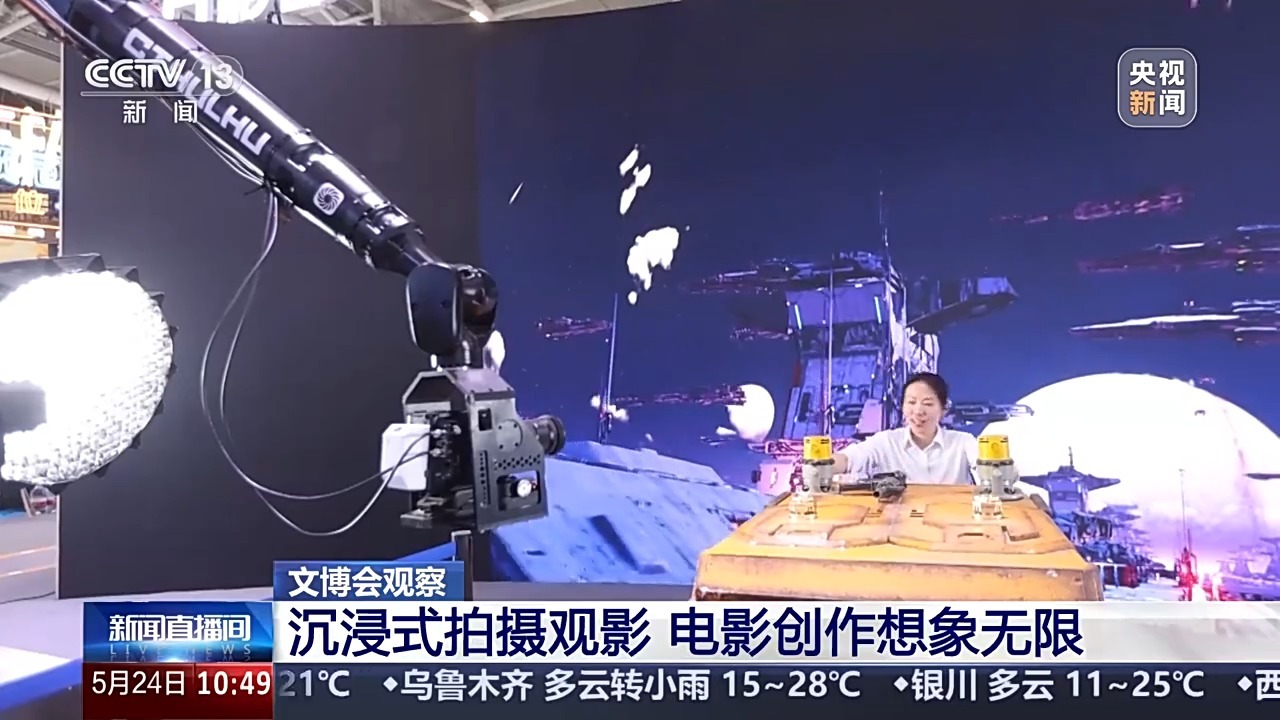 为期5天的第二十一届我国深圳)国际文明产业饱览交易会正在广东深圳举办。本届文博会面向全球会集展现12万件优异文明立异发明产品。沉溺式拍照观影。电影创造幻想无限。在本届文博会上,记者发现,人工智能现已充
...[详细]
为期5天的第二十一届我国深圳)国际文明产业饱览交易会正在广东深圳举办。本届文博会面向全球会集展现12万件优异文明立异发明产品。沉溺式拍照观影。电影创造幻想无限。在本届文博会上,记者发现,人工智能现已充
...[详细]

 物理实验室敞开“粒子焰火秀”!
物理实验室敞开“粒子焰火秀”! 联席共商解难题 洽谈交流强管理——合肥高新区枫林社区举行2023年第二季度党建联席会
联席共商解难题 洽谈交流强管理——合肥高新区枫林社区举行2023年第二季度党建联席会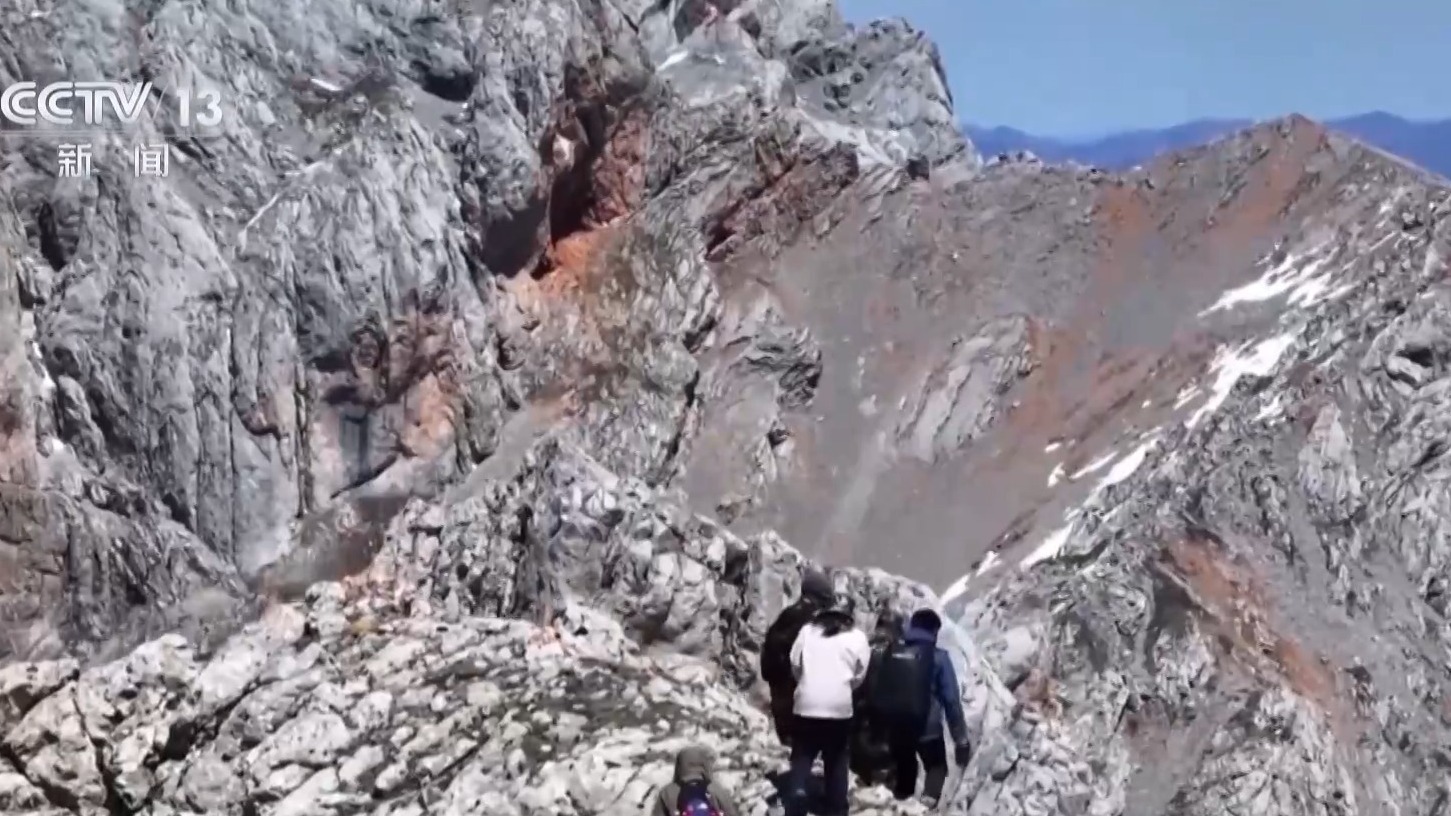 红外相机里有什么?荒漠猫、兔狲……含“野”量不要太高
红外相机里有什么?荒漠猫、兔狲……含“野”量不要太高 对美加征84%关税怎么履行 海关总署发布公告
对美加征84%关税怎么履行 海关总署发布公告